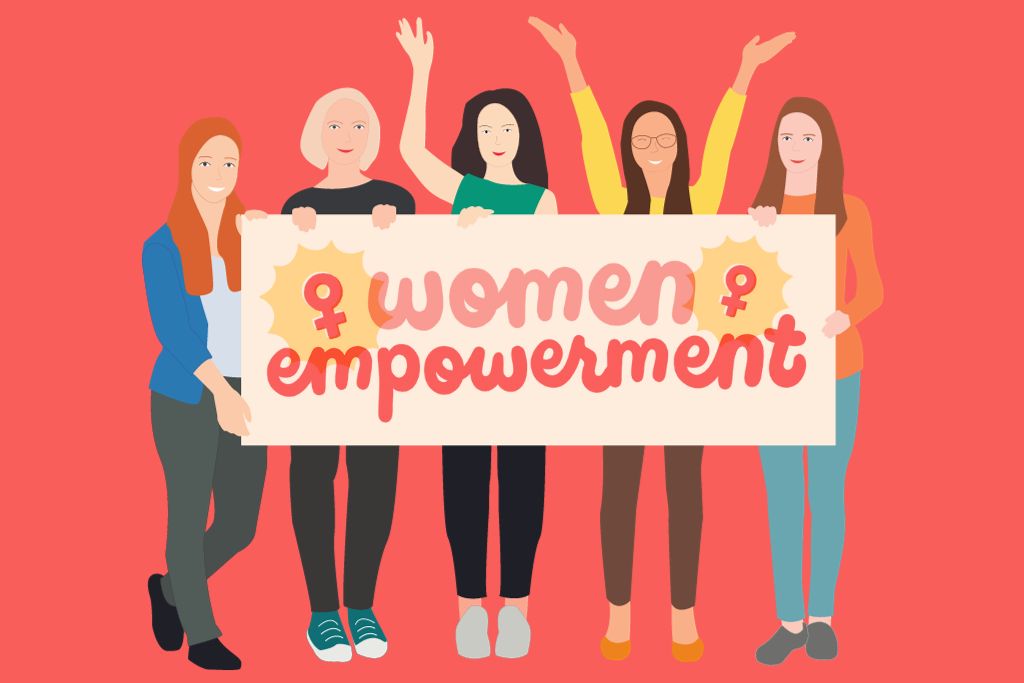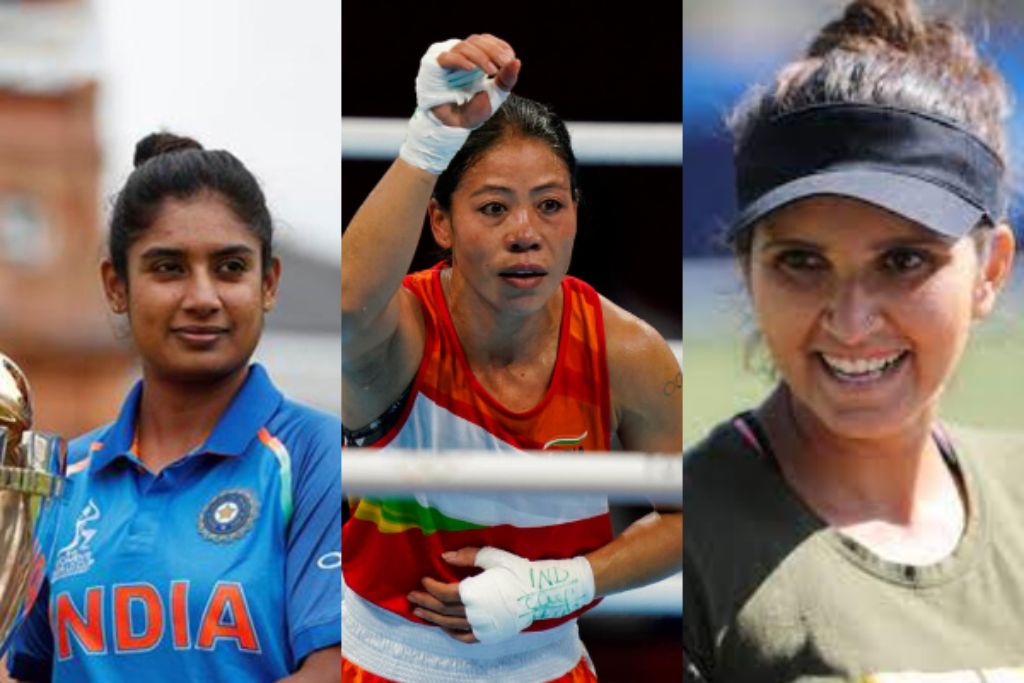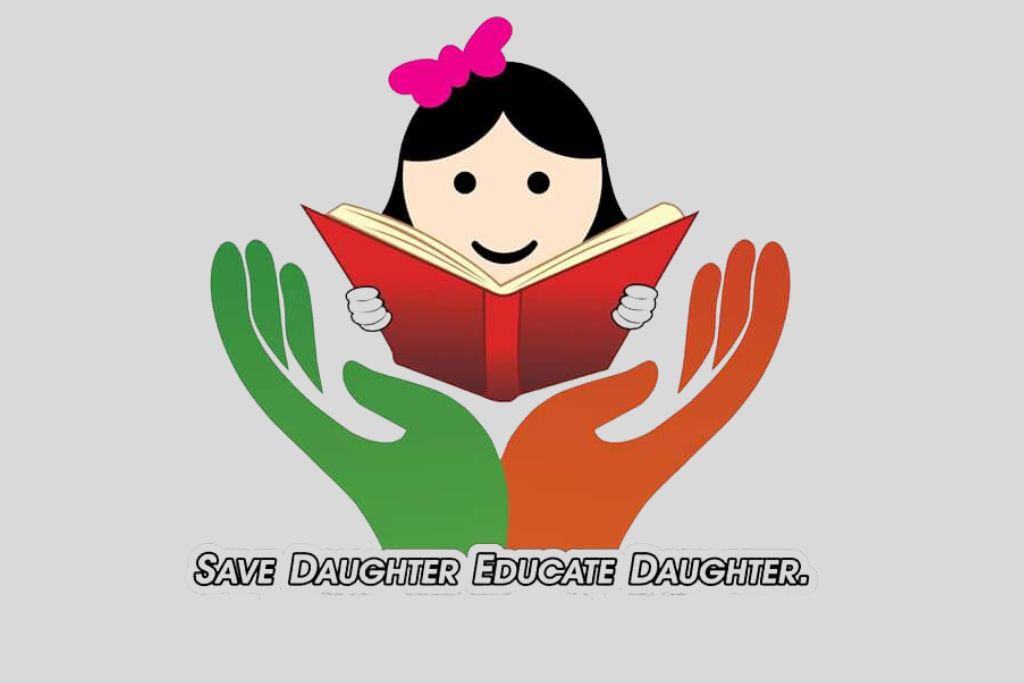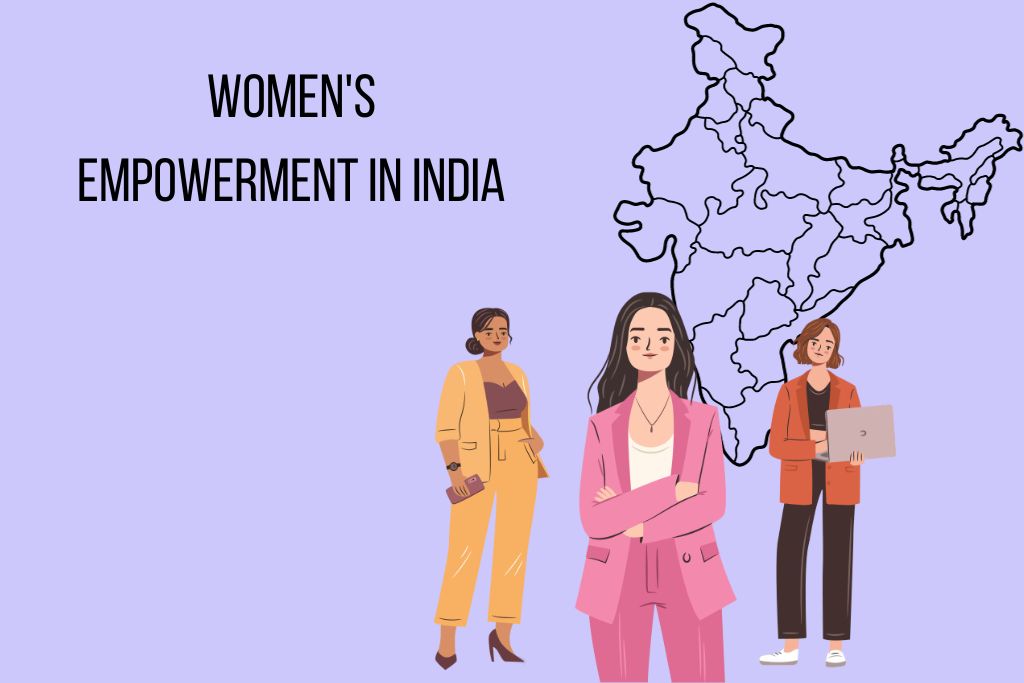Welcome to the vibrant and empowering world of Nari Shakti, the unstoppable force that celebrates the indomitable spirit of women in India. In a country where traditions run deep and values are steeped in patriarchal norms, Nari Shakti emerges as a powerful wave, challenging societal barriers and leaving an indelible mark on every aspect of life.
From being confined within the walls of their homes to becoming leaders, entrepreneurs, scientists, artists, athletes, and everything in between, Indian women have come a long way on their journey toward empowerment. Today, we take a moment to celebrate their awe-inspiring achievements, acknowledge the challenges they face daily, and explore the initiatives that continue to pave the path for gender equality.
Join us as we delve into the history of women’s empowerment in India and dive headfirst into inspiring success stories that will leave you filled with admiration for these trailblazing individuals. From battling stereotypes to breaking glass ceilings across various fields, be prepared to witness firsthand how Nari Shakti has revolutionized society at large.
The History of Women’s Empowerment in India
The history of women’s empowerment in India is a testament to the indomitable spirit and resilience of Nari Shakti. Over the centuries, Indian women have fought against societal norms and discriminatory practices to carve out their own paths.
In ancient times, women held respected positions in society as scholars, warriors, and rulers. The Rigveda, one of the oldest scriptures in the world, mentions powerful female deities like Devi and Saraswati. However, with invasions and foreign rule came a decline in women’s status.

During British colonial rule, education became a tool for social reform. Visionaries like Raja Ram Mohan Roy advocated for girls’ education and widow remarriage. Women like Kamini Roy emerged as pioneers in fields such as literature and activism.
Post-independence saw significant milestones for gender equality. The Constitution of India enshrines equal rights for men and women. Leaders like Indira Gandhi shattered glass ceilings by becoming the first female prime minister.
Despite progress made over time, challenges persist today. Gender-based violence remains rampant, particularly in rural areas. Discrimination at home or the workplace hinders many from realizing their full potential.
Both government agencies and non-profit organizations have launched a number of initiatives to address these issues head-on. Programs focusing on skill development, financial inclusion, and reproductive health care are empowering women across sectors.
Success stories abound: Kalpana Chawla soared through space as an astronaut; Kiran Bedi broke barriers to become India’s first woman IPS officer; Mary Kom punched her way to boxing glory; Arundhati Bhattacharya led the State Bank of India as its first female chairperson. These are just a few examples of the countless women who have shattered stereotypes to pave the way for future generations. Bank of India with distinction, just to name a few!
Men play an integral role too; supporting Nari Shakti is not limited solely to women themselves! By challenging patriarchy within families and communities while promoting gender equality and inclusivity at all levels, they help forge a more equitable society.
As we look towards the future, it is crucial to continue championing women’s rights and empowerment.
Achievements of Nari Shakti in Various Fields
From science and technology to sports and politics, women in India have made their mark across various fields. Here are some notable achievements of Nari Shakti in India: Nari Shakti, the unstoppable force of women’s power, has made remarkable achievements across various fields. In politics, we have witnessed inspiring female leaders breaking barriers and shattering glass ceilings. From Indira Gandhi becoming the first female Prime Minister to Pratibha Patil serving as India’s first female President, women have held some of the highest positions in the country. President, these trailblazers have paved the way for future generations.

In sports, Indian women athletes continue to shine on a global stage. We celebrate achievers like Mary Kom, who has won numerous boxing championships and Olympic medals. The rise of Saina Nehwal and PV Sindhu in badminton has inspired young girls to dream big.
The field of science is also witnessing significant contributions from Nari Shakti. Women scientists like Tessy Thomas (the Missile Woman) and Minal Rohit (who developed an affordable COVID-19 testing kit) have made groundbreaking discoveries that propelled our nation forward.
Nari Shakti has also excelled in entrepreneurship and business leadership. Women entrepreneurs like Kiran Mazumdar Shaw (Biocon), Falguni Nayar (Nykaa), and Ritu Kumar (fashion designer) have built successful enterprises while empowering other women along the way.
In arts and entertainment, too, female artists are making their mark globally. Whether it’s Priyanka Chopra Jonas conquering Hollywood or classical dancer Mallika Sarabhai mesmerizing audiences with her performances, these talented individuals showcase the immense potential of Nari Shakti.
Despite facing several challenges along their journey, women in India continue to break stereotypes and make strides towards gender equality. Their achievements serve as a testament to their resilience, determination, and unwavering spirit!
Note: The above blog section is approximately 150 words long, but may vary slightly based on formatting choices made by the user
Challenges Faced by Women in India
In the journey towards women’s empowerment, it is crucial to acknowledge and address the challenges that women face in India. Despite progress being made on various fronts, women continue to encounter obstacles that hinder their full participation and success.
One of the significant challenges is gender-based violence. Women are often subjected to physical, emotional, and sexual abuse, both within their homes and in public spaces. This affects their physical well-being and hampers their self-esteem and overall development.

Another challenge is limited access to education. Although efforts have been made to improve literacy rates among girls, there are still areas where cultural norms prioritize boys’ education over girls’. This disparity denies countless young girls the opportunity to reach their full potential.
Furthermore, economic inequality poses a major hurdle for women in India. They often face discrimination in employment opportunities and wage gaps compared to men performing similar work. The lack of financial independence restricts their ability to make decisions regarding their own lives.
Societal expectations also play a role in limiting women’s choices and aspirations. Traditional gender roles can confine them within specific domains, such as household chores or caregiving responsibilities, preventing them from pursuing careers or personal goals outside these boundaries.
Political underrepresentation remains a challenge for women in India. Although some strides have been made with increased representation at various levels of government, more needs to be done to ensure the equal participation of women in decision-making processes.
It is important for society as a whole—individuals, communities, and institutions—to come together and address these challenges collectively. By promoting awareness about gender equality and advocating for changes at all levels of society, we can create an environment where every woman has the freedom and support she deserves.
Initiatives and Programs for Women’s Empowerment
Initiatives and programs for women’s empowerment have played a crucial role in promoting gender equality and creating opportunities for women in India. These initiatives aim to address the various challenges faced by women, such as limited access to education, healthcare, employment, and equal rights.
The Indian government’s Beti Bachao Beti Padhao (Save Daughter, Educate Daughter) campaign is one of the prominent initiatives. This program focuses on improving the child-sex ratio and ensuring girls’ education through awareness campaigns, incentives for families with daughters, and stricter enforcement of laws against female foeticide.

Another significant initiative is Mahila E-haat or Women’s Marketplace, an online platform that empowers women entrepreneurs by providing them with a space to showcase their products and reach a wider customer base. This initiative promotes financial independence and encourages entrepreneurship among women.
Furthermore,
Underprivileged households run by women receive free LPG connections thanks to the Ujjwala Yojana program. By addressing traditional cooking methods that often cause health hazards for women due to indoor air pollution from solid fuels like wood or cow dung, this scheme ensures their safety while also reducing deforestation caused by fuelwood consumption.
Additionally, programs like the Sukanya Samriddhi Yojana encourage parents to save money for their daughters’ future education and marriage expenses. The government offers attractive interest rates along with tax benefits under this scheme.
Moreover, self-help groups (SHGs) have been instrumental in empowering rural women across India. These groups provide financial assistance through microcredit schemes, enabling them to start small businesses or engage in income-generating activities.
Government-supported vocational training programs are also helping bridge the skill gap among marginalized sections of society, including rural girls and women who lack formal education but possess immense potential. These programs equip them with practical skills needed for jobs in various sectors, such as textiles, handicrafts, the hospitality industry, etc., thus enhancing their employability.
Success Stories of Empowered Women
- Pooja is a shining example of Nari Shakti in action. From a small village in rural Rajasthan, she broke free from societal norms and pursued her passion for education. With sheer determination, Pooja fought against all odds to become the first woman in her community to graduate from college. Today, she is an influential advocate for girls’ education and runs a successful NGO that provides scholarships to underprivileged girls.
- Ritu, a single mother from Delhi, defied stereotypes by starting her own business in the male-dominated field of technology. Through hard work and perseverance, she built a thriving software company that now employs dozens of talented female engineers. Ritu’s story inspires countless others to challenge gender biases in the workplace.
- Rekha, hailing from a marginalized tribal community in Odisha, overcame poverty and discrimination to become an acclaimed social entrepreneur. She established a cooperative that empowers local women by training them in handicraft production and providing them with fair wages. Rekha’s enterprise has uplifted the lives of these women and brought recognition to their unique cultural heritage.
- Deepa, born with a visual impairment, refused to let her disability define her capabilities. She became an accomplished para-athlete who represented India at international competitions like the Paralympic Games, where she won several medals in swimming and athletic events.
These success stories demonstrate how empowered women can break barriers and create positive change within their communities and beyond! They are beacons of hope for future generations of aspiring female leaders who dare to dream big despite facing adversity.
The Role of Men in Supporting Nari Shakti
Men have a crucial role to play in supporting and championing women’s empowerment, also known as Nari Shakti. It is not just a battle for women alone; it requires the collective effort of both men and women to create an equal and inclusive society.
One way men can support Nari Shakti is by actively promoting gender equality in their own homes. This means sharing household responsibilities, encouraging open communication, and treating their partners as equals. By challenging traditional gender roles and expectations, men can help break down barriers that limit women’s potential.

In addition to fostering equality at home, men must also challenge patriarchal norms and attitudes in wider society. They can use their privilege and influence to advocate for policies that promote gender equality in workplaces, schools, and other institutions. By amplifying the voices of women and standing up against discrimination or harassment, men can contribute to creating safer spaces for all.
Furthermore, education plays a pivotal role in shaping attitudes towards gender roles. Men should actively engage in conversations about consent, respectful relationships, and dismantling harmful stereotypes surrounding masculinity. By educating themselves on issues such as domestic violence or workplace discrimination faced by women, they can become allies who work towards positive change.
Supporting Nari Shakti requires ongoing commitment from everyone, regardless of gender. Men need to recognize the benefits of gender equality not only for individual women but also for society as a whole. Through allyship with empowered women leaders or organizations advocating for change like NGOs focused on empowering girls through education or providing healthcare access, we rise together toward a future where every woman has the opportunity to unleash her true potential!
Future Outlook for Women’s Empowerment in India
As we celebrate the unstoppable force of Nari Shakti, it is important to keep looking forward and envision a future where women in India continue to thrive and achieve greater heights. The journey towards women’s empowerment has come a long way, but there is still much work to be done.

The government of India has taken significant steps towards promoting gender equality and empowering women. Initiatives like Beti Bachao Beti Padhao (Save the Girl Child, Educate the Girl Child) have been instrumental in addressing issues of female foeticide and promoting girls’ education. The implementation of laws such as the Sexual Harassment of Women at Workplace Act and the Maternity Benefit Act further protects women’s rights.
In addition to these efforts, non-governmental organizations, grassroots movements, and social media campaigns have played a crucial role in raising awareness about gender-based violence, discrimination, and inequality. These collective actions have sparked conversations that challenge societal norms and strive for change.
The future outlook for women’s empowerment in India looks promising. With advancements in technology and increased access to education, more opportunities will open up for women across various sectors. As more women break barriers traditionally imposed by society, they serve as inspirations for others who aspire to pursue their dreams without limitations.
However, challenges persist on this path towards progress. Gender-based violence continues to be an issue that needs urgent attention. Efforts must also be made to bridge the gender pay gap and ensure equal representation of women in leadership positions across industries.
Men play a crucial role as allies in supporting Nari Shakti. It is essential for men not only to acknowledge their privilege but also to actively promote gender equality within their spheres of influence, whether it be at home or in the workplace, by challenging stereotypes and advocating for inclusive practices.
Nari Shakti embodies resilience, strength, and determination—qualities that have propelled women in India to overcome obstacles and make significant contributions in various fields.
